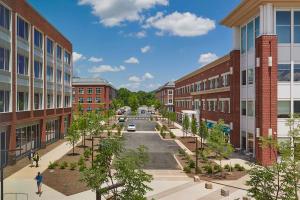Human Technology Interaction
Improving humans’ ability to work effectively in complex technical systems.

From faculty who specialize in human factors engineering to experts in building a superior autonomous vehicle, our Human Technology Interaction researchers investigate the complicated questions that arise when people interface with technology. When integrating human and machine intelligence, how do we know which one should be in charge when? How do we maximize the contributions of both? Can we imbue a machine with emotional intelligence, so it can use its cameras, sensors and algorithms to understand and act on what a human partner needs? Our researchers are asking these kinds of questions as they address challenges in areas such as haptics, autonomy and controls and control systems, risk and decision analysis, and human-centered computing.
Human Technology Interaction Faculty


Afsaneh Doryab
Afsaneh Doryab's research is at the intersection of ubiquitous computing, AI, HCI, and health. She works on computational modeling of human behavior (incl. Activity Recognition) from data streams collected via mobile, wearable, and embedded sensors.

Gregory J. Gerling
My research interests span the fields of haptics, computational neuroscience, biomechanics, human–machine interaction, UX/UI, and human factors and ergonomics. We investigate cutaneous and proprioceptive cues that convey an object’s softness, and neural and biomechanical bases of social and emotional touch, and soft tissue manipulation or massage.

Tariq Iqbal

Leidy Klotz
Leidy Klotz studies and writes about design and problem-solving. He has published two books (with a third in press), over 80 peer-reviewed articles in scientific journals including Nature and Science, and numerous articles in publications such as The Washington Post, Harvard Business Review, Fast Company, and Scientific American.

James H. Lambert



